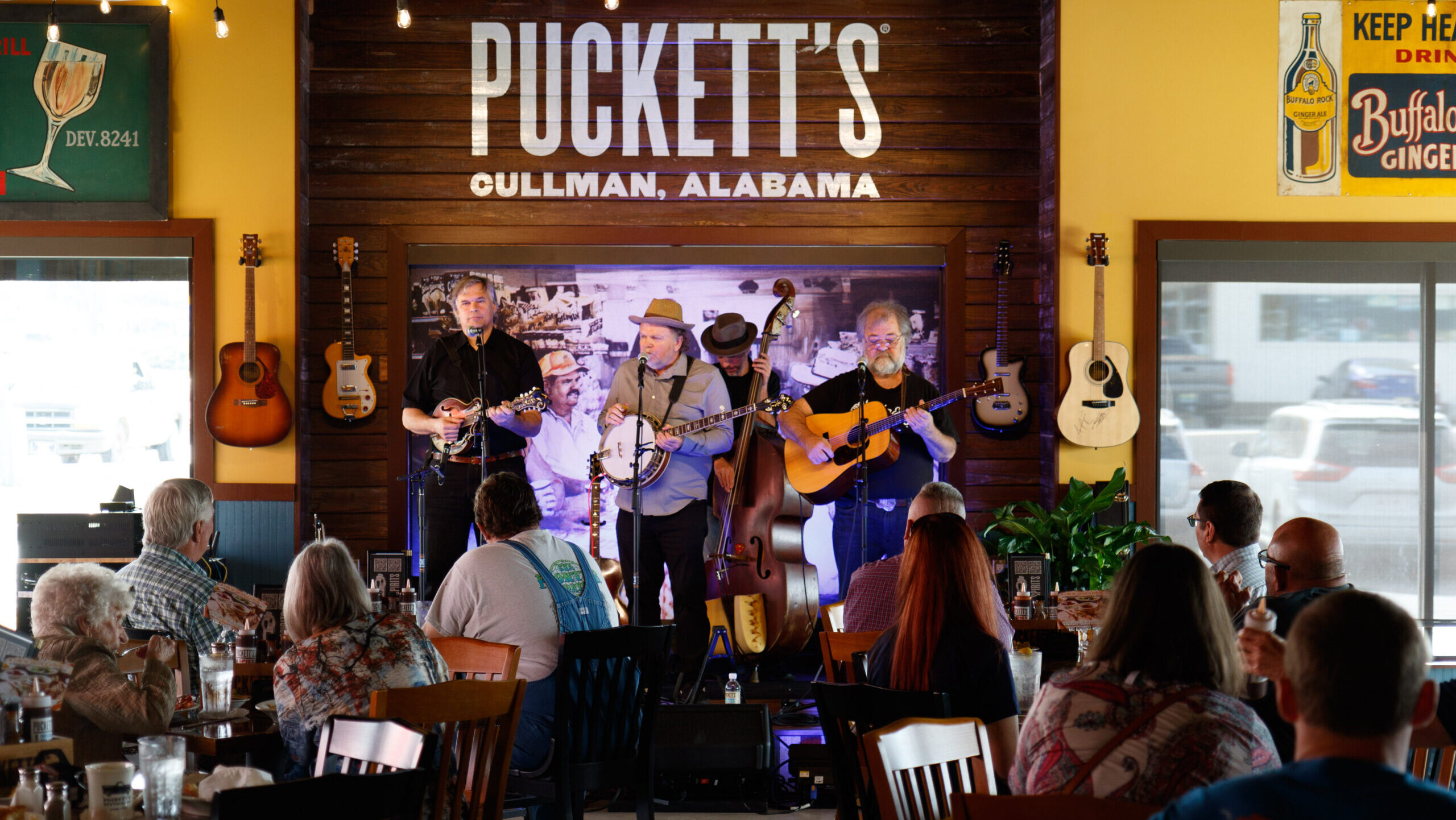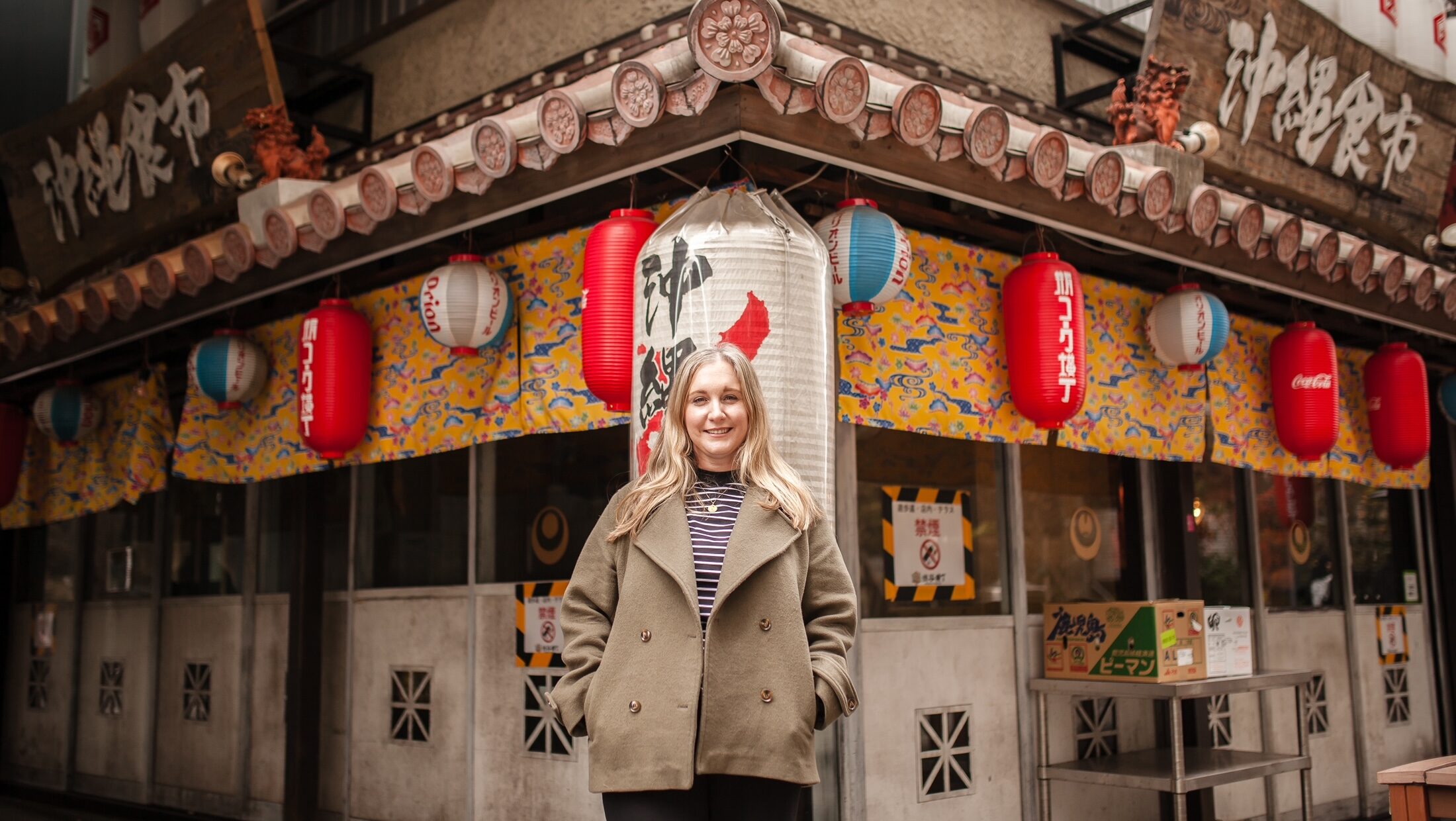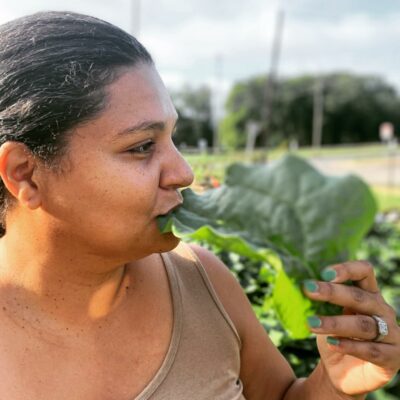
Maria Dominique Villanueva tastes a spinach leaf from the farm (Fountain Heights Farms/Facebook)
A man walks by the main lot at Fountain Heights Farms, where Maria Dominique Villanueva trims the outer leaves from just-picked winter cabbage that she and her husband, Chris Gooden, grow in a north Birmingham neighborhood.
“Hey Wallace,” she calls out, waving to the man. “How are you? You want some cabbage?” They talk briefly and share a laugh before he continues on with a couple of heads of fresh produce.
It’s a regular occurrence at the urban farm, spread over three separate plots that total a little less than an acre. They’re within a 10-block area in the historic neighborhood near the Birmingham-Jefferson Convention Complex, which has fallen on hard times since the community was left isolated by interstate construction that was completed in 1971.
“This is a walking neighborhood so folks who come by will get something,” says Villanueva, a mother of three whose main growing area is next to her family’s home. “We put a lot of stuff on the free stand. We do a delivery for a CSA (Community Support Agriculture) program. All of our stuff is on a sliding scale.”
Villanueva and Gooden grow multiple types of tomatoes, herbs, ginger, garlic, cabbages, collards and other leafy greens, lettuces, squashes, heirloom produce like Nigerian spinach, and chile peppers.
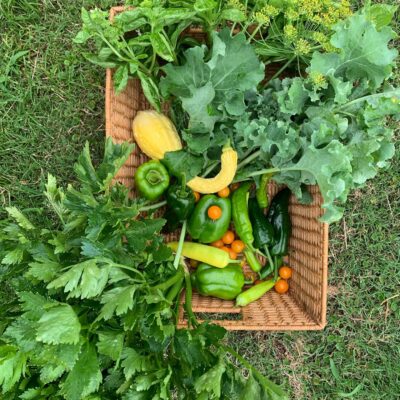
(Fountain Heights Farms/Facebook)
“We grow a lot of peppers and are going to do a whole lot more,” Villanueva says. “We’ve got a neighbor who does her own microbusiness with pepper sauce. We’re going to make sure she has enough.”
Last year Fountain Heights Farms distributed more than 10,000 pounds of food worth some $32,000. Most of it fed the low-income community, where the nearest markets that sell fresh produce are two miles and more away. In Fountain Heights, one in four children and one in six adults face food insecurity and hunger.
Villanueva and Gooden also have started a $100,000 capital campaign to build permanent infrastructure, including a post-harvest wash and pack station, a community kitchen, and a farm stand. Plans also call for installing refrigeration and an ADA-accessible restroom. They’re envisioned as amenities for everyone.
“That’s what the heart of this farm is about,” she says. “It’s creating the space, not only for Fountain Heights Farms, but also for all the other urban farmers. We’re a tight-knit community and we like to share.”
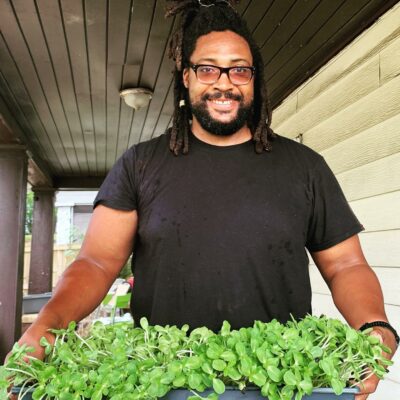
Chris Gooden (Fountain Heights Farms/Facebook)
Villanueva’s goal is to raise the money by April 27, the day she turns 40, but the campaign has a long way to go. “Thankfully we already have the land and the will of the neighborhood,” she says. “It’s just about putting together the resources to get it done.”
Donations can be made through the farms’ website or via links on FHFs’ social media.
Gooden and Villanueva were looking to cut household expenses when they started growing their own family’s food. The transition from subsistence to urban farming happened, well, organically.
When the couple bought their current home in Fountain Heights, the plots they planted in the front and back yards produced more than her family could eat or preserve by canning. So, they did what any good neighbor would do: share.
“It’s always been like the community garden,” she says. “I was giving food out as people walked by. We told them they could pick their own if they wanted. Eventually I set up a free stand in front of the house.”
Seeing a need they could feed, the couple decided to grow more food. Officially established in 2017, Fountain Heights Farms has since expanded to two other lots adjoining their property, as well as two nearby lots.
The main farm includes a greenhouse, where a new no-soil aquaponic growing system will start producing lettuces. The outdoor growing area includes raised beds and radiating half-circle crop rows with richly-built dark soil.
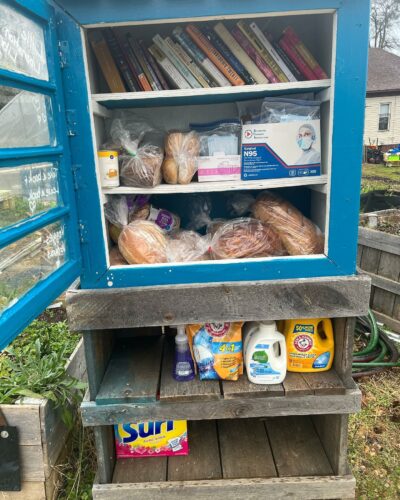
A free stand is stocked with food and supplies for the neighborhood (Fountain Heights Farms/Facebook)
In addition to food the urban farm grows, organizations like Birmingham Mutual Aid and Margins: Women Helping Black Women supplement offerings on the free stand with cleaning supplies, protective masks, diapers, wipes—things that EBT public assistance doesn’t cover.
The couple would like to foster a community of urban farmers interspersed throughout the community, turning blighted lots into productive land that fulfils nutritional needs in the neighborhood.
“We can do it cooperatively and share,” Villanueva says. “I don’t always need my chillers. I just bought 4,000 feet of irrigation. I don’t need 4,000 feet. But it was a good deal. So let someone else come up on that deal.”
Farming is hard, and Villanueva and Gooden work other jobs as well to help keep Fountain Heights Farms running.
“It really feeds our spirit to hear people say, ‘I was able to make a whole meal out of what y’all put in there and I didn’t know how I was going to do that,’” she says. “That’s the kind of stuff that keeps us going.”


